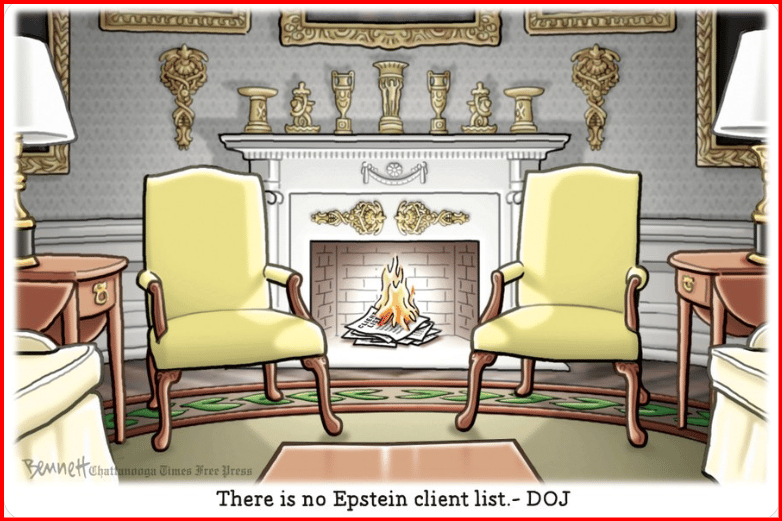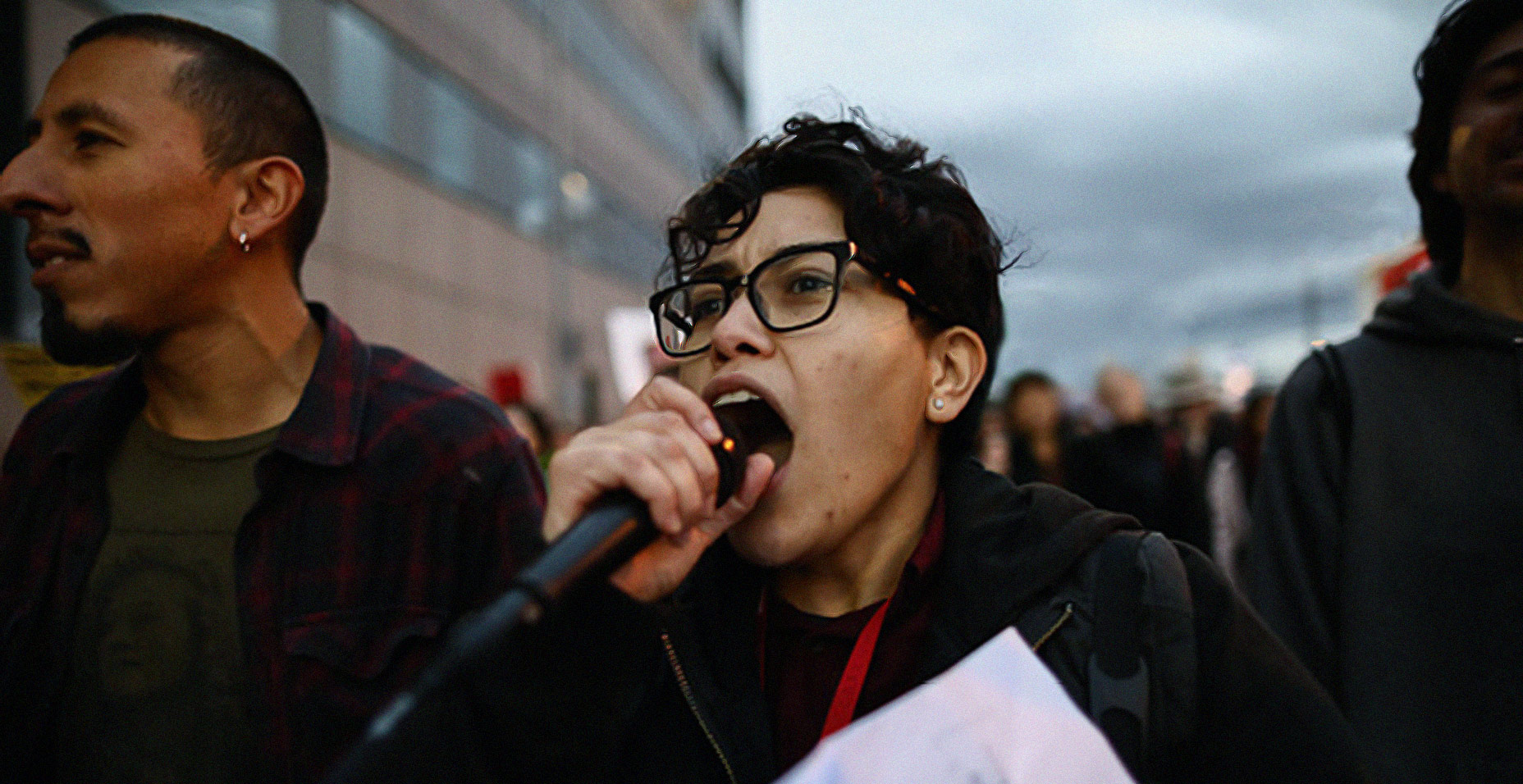- Southern Progressives
- Posts
- Southern Progressives
Southern Progressives
Moving to the left, one post at a time.

National News:
State News:
Local News:

Political Cartoon:

Seniors:
My Take:
I wish I could write like this:
In an age where corruption is sold as competence and cruelty as clarity, the line between governance and grift has grown dangerously thin. Under Trump, that line didn’t blur—it vanished. What emerged wasn’t just mismanagement or ideological extremism, but a systematic mode of extraction, where the state itself was turned into an engine of enrichment for the few.
This wasn’t new. The mechanics were already in place. But Trump stripped them of pretense. What took shape under his leadership was a raw and visible form of what might best be called accumulation by dispossession—not through innovation, but by seizure. Through privatization, deregulation, defunding, and destabilization, wealth was moved upward by force of policy.
The pandemic revealed this with brutal clarity. Relief funds intended to cushion the blow for workers and small businesses were rerouted to major corporations and political allies. Contracts for protective equipment flowed to the connected, not the competent. Oversight mechanisms were sidelined, and accountability dissolved. What should have been a moment of collective care became a marketplace of opportunity for those already positioned to profit.
Or take public lands. Under Trump, millions of acres were opened to extraction—drilling, mining, grazing—not for public benefit, but for private gain. Environmental protections were stripped, tribal sovereignty undermined, and sacred sites desecrated in the name of “freedom.” This wasn’t policy in the traditional sense—it was liquidation. What belonged to all was transferred to a few.
Even immigration policy was part of this calculus. Migrants were not only criminalized; they were commodified. Detention contracts, surveillance technologies, biometric databases, border walls—all became opportunities for profit. The state’s power to detain, sort, and exclude was outsourced and monetized. What looked like enforcement was, in fact, extraction.
What links these moves is not chaos, but coherence. Degrade the commons, discredit public institutions, and redirect the flow of value toward private interests. This wasn’t the dismantling of the state. It was the weaponization of its infrastructure for dispossession. A state repurposed not to serve, but to siphon.
But the logic of dispossession goes deeper than land and money. It erodes time, possibility, and the basic scaffolding of democratic life. Under Trump, trust in public systems was not merely lost—it was actively dismantled. Public education was politicized. The census was manipulated. The Postal Service was hobbled in plain sight. These weren’t isolated failures. They were deliberate efforts to fracture the systems that sustain social reproduction and civic belonging.
This form of rule draws from an older logic. What was once called primitive accumulation—the seizure of land, labor, and resources in the formation of early capitalism—now plays out inside the borders of established democracies. It no longer requires conquest abroad. It cannibalizes institutions at home. The tools are legal, bureaucratic, and digital. The violence is slower, but no less real.
Today, dispossession moves through zoning laws and budget line items, through the privatization of housing, water, and care. It travels through digital networks—data harvested, identities tracked, benefits denied by algorithm. It is ecological, too: extractive industries strip land and poison water while vulnerable communities bear the cost. Climate denial is not ignorance; it is strategy. A way to prolong profit at the expense of planetary survival.
All of this was wrapped in a populist script—a claim to speak for “the forgotten.” But the real beneficiaries were never the working poor. The tax cuts went to the wealthy. The deregulation favored polluters and profiteers. The rhetoric masked the fact that what was being restored was not dignity, but dominion—the power of wealth to go unchallenged.
And yet, dispossession is never just about theft. It is also about narrative. Trump didn’t just strip resources—he rewrote the moral economy. He told people they had been wronged, then sold them a performance of revenge: against immigrants, against environmentalists, against the very idea of collective responsibility. Extraction was reframed as justice. Looting as loyalty.
What was taken wasn’t only tangible. It was temporal. The future was foreclosed for many—through student debt, housing precarity, degraded schools, and unsafe work. This is how accumulation works now: not by creating wealth, but by extracting life from the margins—one hour, one service, one body at a time.
This is why the Trump era cannot be dismissed as mere chaos. It revealed something deeper: a governance model that no longer aims to build, only to strip; that sees care as waste and solidarity as threat. It exposed the machinery of extraction that had been running for decades—but now without shame, without brakes, without apology.
Yet even in the wreckage, the story isn’t over. Dispossession often generates its opposite: solidarity. When people lose what was promised—land, labor, dignity—they look to each other. Mutual aid networks surged in the pandemic. Teachers, nurses, transit workers, and tenants organized. The commons is not gone. It is damaged. But it can be rebuilt—not by nostalgia, but by design.
Reclaiming what has been taken will not be easy. The machinery of extraction is deeply embedded. But history teaches that even the most entrenched systems crack when the stories upholding them collapse. What we need now are new stories—grounded in dignity, interdependence, and a future not for sale.
Because what was lost in the Trump years wasn’t just public money. It was the idea that government could be something other than a shell game for the powerful. Recovering that idea will take more than elections. It will require repair—material, institutional, and moral.
And that begins by naming what happened for what it was: not just corruption or chaos, but a calculated project of dispossession. And by insisting, again, that the public belongs to the people—not to those who see it only as something to plunder.
Brad Kaplan






Reply